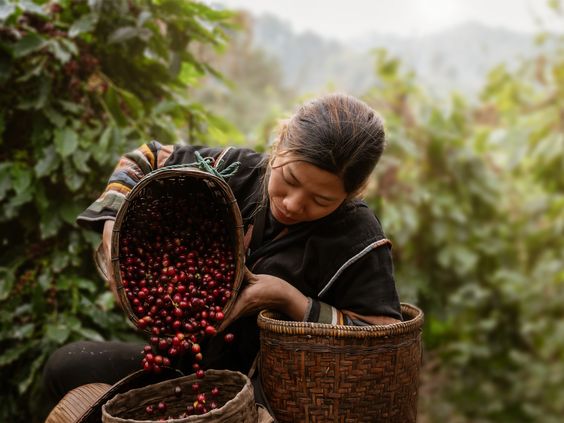
5 reasons you should be buying ethically-sourced coffee in Latin America
Share
What’s the real price of your cup of coffee? Unfortunately, the answer to that question often includes child labor, exploited farmers, and vast environmental harm.
Latin America is a coffee-making powerhouse, accounting for nearly 60 percent of worldwide coffee consumption. Its farmers are struggling with drastically low wages, unsanitary working conditions, and the spread of coffee tree disease due to poor environmental conditions.
If you’re buying your coffee from Latin America, here’s why you should make sure you’re buying from an ethical supplier.
You could spend $3.50 on a cup of coffee without a second thought, while coffee growers are earning as little as 3 cents. As coffee prices continue to fall due to global demand, farmers are struggling to feed their families and pay school fees.
This is all while they’re performing the physically grueling work required in coffee farms such as picking, sorting, weeding, and fertilizing - often in very high temperatures.
The roots of the coffee industry unfortunately lie in the slave trade. Isn’t it ironic, then, that society is still imposing forced labor on coffee workers? Forced labor has been reported in coffee-growing regions including Guatemala, where workers may face verbal or physical abuse and the loss of wages or food if they don’t meet unrealistic demands.
As a result of the low wages combined with the unreasonably high targets set, many coffee workers bring their children along to help meet their daily quotas. These children cannot be officially employed, so they often do not receive any legal protection meaning they’re underpaid and overworked.
So, just how much of your coffee is being made by a child? During the coffee-harvesting season in Honduras, up to 40% of the workers are children. In Brazil, a study has found that 5,000 children work on coffee plantations - many without protective equipment or an employment contract.
Not only are these kids being exposed to the dangers of manual labor from a young age, they’re also being deprived of an education and are forced to live in unsanitary conditions. Many children and their parents live in temporary, crowded accommodation with no electricity or hot water.
In its natural setting, coffee has always been grown in tropical or subtropical areas with high biodiversity levels and shade that creates healthy habitats for an array of wildlife. The trees and animals prevented topsoil erosion meaning there was no need for fertilizers.
The increasing global market demands have led to dangerous growing methods which have huge implications on sustainability. ‘Sun cultivation’, which began around 50 years ago, has quickly overtaken the safe, traditional methods of growing coffee.
Sun-grown coffee is produced in plantations with no form of shade, resulting in the need for fertilizers and destroying forests and biodiversity.
2.5 million acres of forest in Central America alone have been destroyed to make way for coffee farms, and 37 of the 50 countries with the highest deforestation rates are coffee producers.
For many indigenous communities across Latin America, coffee (and the land it grows on) holds a spiritual meaning to them.
In Colombia, for example, the Kogi people believe that coffee was sent to their land by Kalache, the spiritual father of trees; and so they must respect it. This means they have a different set of cultivation practices, avoiding all use of chemicals and fertilizers from the coffee growing process.
Most ethical coffee suppliers (like Semilla) ensure products are grown according to agroforestry methodology in respect of indigenous culture - meaning intercropping plants that thrive in tropical and subtropical climates and biodiverse environments.
Thanks to the ease at which we can now access information, humans are far more educated on the serious issues facing the world today. The increased awareness on matters such as climate change has led to a huge uplift in veganism and shopping sustainably. So why shouldn’t the same apply when you buy a cup of coffee?
Buying from an ethical supplier means you’ll be helping in the stoppage of worker exploitation, deforestation, child labor, and you’ll be aiding local indigenous communities.
At Semilla, we work directly with small family farms and producers, supporting the development of their communities. We monitor our ecological impact, backing the regenerative agriculture processes our ancestors adhered to. In addition, 10% of our profits go to non-profit organizations which help towards providing education and health services to local children & communities.
To check out our range of beyond organic and consciously planted coffee - head here.
